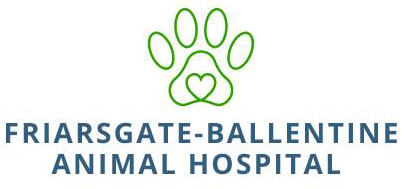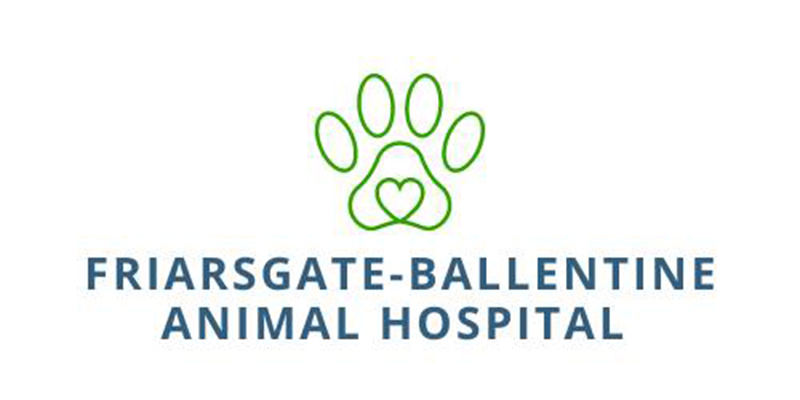Helpful Links
Find reliable pet care information via these resources compiled and verified by the Friarsgate-Ballentine Animal Hospital team.
National Organizations
Our team has taken the time to create a collection of sites and documents with reliable and trusted information as a resource for you. We trust the information these resources provide to you, our client, and member of our family, but we encourage you to always call us with any questions.
Pet Health
*We are not affiliated with any of these organizations.
Zoonotic Intestinal Parasites
What is Zoonotic Disease?
Any infectious disease that can be transmitted from animals to humans
• Roundworms
• Hookworms
How did my pet become infected with Roundworms and/or Hookworms?
Pets can become infected by round & hookworms starting during the developmental stages in an
infected mothers uterus. These worms can also be passed to the young from an infected mother during
the nursing process. These worms can also be contracted through the soil in the pets environment.
How do I treat my pet for Roundworms and/or Hookworms?
Routine microscopic fecal checks by your veterinarian will help the detection of Roundworms and
Hookworms. Signs and symptoms sometimes seen by pet owners are vomiting, diarrhea, weight loss,
and lethargy. As puppies & kittens a routine dewormer will help rid your precious little one of these
pesky parasites. A monthly dewormer will help in the management of Roundworm and Hookworm
infestations.
How do Roundworms and/or Hookworms effect me and my family?
Roundworms & Hookworms are resilient and can live in many areas that you and your family may play
and visit such as parks, playgrounds and even your back yard. People can become infected through
direct contact with contaminated soil and sand. Once ingested and left untreated the worms will travel
throughout the body wandering through different organs. Roundworms can cause permanent nerve or
eye damage, even blindness. Hookworms can be just as damaging, penetrating into deep tissues and
organs.
How can I protect my family?
Routine Screens and have your pet dewormed regularly by your Veterinarian and started on a
preventive drug program. Keep play areas around your home free of animal waste and cover sandboxes
when not in use.
Kennel cough
Kennel Cough is a highly contagious canine illness characterized by inflammation of the upper
respiratory system.
Symptoms can include a harsh, dry hacking/coughing, retching, sneezing, snorting, gagging or
vomiting in response to light pressing of the trachea or after excitement or exercise. The disease
can last initially from 10–20 days.
Diagnosis is made by seeing symptoms and having a history of exposure is also helpful but not
always found. Kennel cough is easily spread through contact with contaminated surfaces such as
the ground, toys, and sidewalks.
Antibiotics are given to treat any bacterial infection present. Cough suppressants are used if the
cough is not productive (nothing is being coughed up). Prevention is by vaccinating for canine
Adenovirus, Distemper, Parainfluenza, and Bordetella.
Heartworm Disease
The life cycle of a heartworm
Heartworms are transmitted from dog to dog by mosquitos. When a mosquito bites a dog it takes a blood meal. If that dog has heartworms, the mosquito can ingest micofilaria (aka baby heartworms) and begin early stages of development. When the same mosquito bites
another dog, the microfilaria can be passed along during this blood meal. If a dog is not on heartworm prevention the microfilaria will continue to develop into adult heartworms. Adult heartworms live in the heart and will continue to reproduce if left untreated. The entire cycle
from mosquito bite to adult heartworm takes 6 months.
Heartworm prevention
Prevention against heartworms is available at your licensed Veterinarian. Puppies should be started on preventative by 7-9 weeks of age. Heartworm prevention is given once a month, year-round, for the entire life of the dog. It is recommended that once the puppy reaches 10 months of age it be tested for heartworms. A heartworm test and exam are required once a year to continue to refill the preventative.
Dogs older than 9 months of age will require a heartworm test prior to starting heartworm prevention.
Heartworm treatment
Dogs that test positive for heartworms must undergo heartworm treatment to kill both the microfilaria and adult worms. If left untreated the adult worms will damage the heart and other organs of the dog.
Heartworm treatment is divided into phases and requires a few months to complete. Each patient will require bloodwork, urinalysis, and chest radiographs to ensure the dog is healthy enough to withstand treatment. During all phases of treatment, the patient will need to have restricted activity while the adult worms are dying and being reabsorbed by the body.
Once treatment is complete the patient will have another heartworm test to ensure treatment success and then continue on a monthly heartworm prevention.

